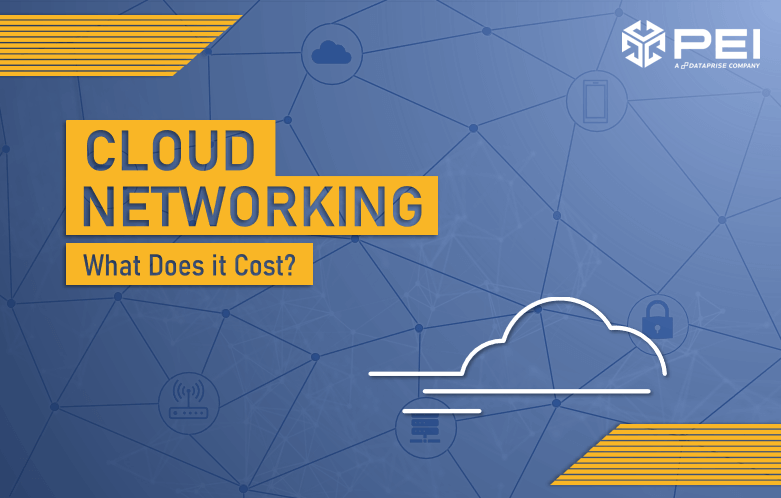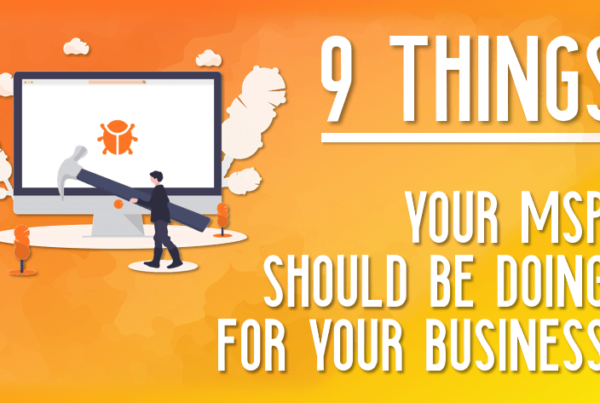
When you’re getting ready to start a Cloud Networking project, it can be difficult to know what your budget might need to look like to support the new infrastructure. The cloud is often either touted as a miraculous cost-saving platform or a money-draining platform with thousands of hidden costs you can’t control or foresee. The popularity of each of these claims goes to show that cloud costs and cloud networking costs especially aren’t understood very well.
If you’re looking to price out a cloud networking need, you need to know that the costs can vary wildly depending on the scope of your specific project and the specific workload you’re enabling. The costs involved should include,
- The labor cost (either internal or outsourced) of designing and building resources in Azure.
- The ongoing compute or processing costs from Microsoft Azure to run your workloads.
- The ongoing cost of supporting your environment through outsourced or internal efforts.
- Any additional costs associated with remediation of existing resources (either on premises or in the cloud already) to support the new workloads.
The Cost of Cloud Networking Services
The cost of working with a cloud consultant for cloud networking can depend on the consultant’s expertise, the scope of the project, the complexity of your networking requirements, the duration of engagement, and the specific services you need. Cloud consultants may charge based on hourly rates or fixed project fees, or retainer agreements. Here are some general considerations:
- Hourly Rates: Many consultants charge hourly rates, which can range from $100 to $300 or more per hour. This will depend on their experience, specialization, and location.
- Project Fees: For larger projects, consultants might provide a fixed project fee. This fee will depend on the project’s complexity, the time involved, and the deliverables.
- Retainer Agreements: Some businesses opt for ongoing support by signing retainer agreements with cloud consultants. Retainers involve a recurring fee for a specified number of hours or services per month.
- Specialization and Expertise: Consultants with specialized knowledge in cloud networking, specific cloud platforms (like Azure, AWS, or Google Cloud), or particular industries may charge higher rates due to their expertise.
- Consulting Firm vs. Independent Consultant: Rates can vary based on whether you’re working with an individual consultant or a consulting firm. Larger consulting firms might have higher fees but can offer a broader range of expertise.
- Duration of Engagement: Short-term engagements for specific tasks might have lower costs compared to long-term projects that require ongoing support.
It’s important to note that while working with a cloud consultant involves costs, the expertise and guidance they provide can result in cost savings through efficient network design, optimized resource utilization, enhanced security, and improved performance. When considering a consultant, request detailed cost estimates, clarify the scope of work, and discuss the specific outcomes you’re aiming to achieve.
Azure Pricing for Cloud Networking Workloads
Once your networking environment or new workloads have been configured, you’ll also need to pay compute and processing fees from Microsoft Azure.
One of the most important things to keep in mind about the fees from Azure is that the cloud architect you’re trusting to build your networking environment plays a pivotal role in determining your costs. Whether you’re working with a Cloud Service Provider or utilizing internal Azure resources, the intricacies of configuration choices can significantly impact your expenditures and result in either bloated or streamlined costs.
Azure costs for networking workloads can include,
- Data Transfer Costs: Azure charges for data transfer between different regions and zones, as well as data transfer out of Azure to the internet. Data transfer costs can depend on the volume of data and the distance it travels.
- Virtual Network and Subnet Costs: Creating and using Virtual Networks (VNets) and subnets within Azure may have associated costs, although these are generally included in the basic pricing.
- Load Balancer Costs: Azure offers different types of load balancers (Basic and Standard) with varying capabilities and costs. The type of load balancer you choose and the volume of traffic it handles can affect your costs.
- Public IP Addresses: If you need public IP addresses for your resources, there might be associated charges. Azure provides both static and dynamic public IP options.
- Network Security Group (NSG) Costs: NSGs are used for controlling inbound and outbound traffic to network interfaces, VMs, and subnets. The number of NSGs and rules can influence costs.
- ExpressRoute and VPN Gateway Costs: If you’re using ExpressRoute for private connectivity to Azure or VPN gateways for secure connections, there are associated costs based on the type of connection and data transfer rates.
- Azure Firewall and Network Virtual Appliances: If you’re using Azure Firewall or third-party network virtual appliances, there may be additional costs.
- DDoS Protection Costs: Azure provides DDoS protection services, which might have associated charges based on the protection level you choose.
- Traffic Manager Costs: If you use Azure Traffic Manager for global load balancing and DNS-based routing, there could be costs based on the number of DNS queries and endpoint monitoring.
The Cost of Supporting Your Environment
Once your environment has been built, another ongoing cost to plan for is the cost to support your environment over time. This cost could be something you outsource to an experienced Cloud Services Provider like PEI or something you handle internally—where time spent by your team members still has an associated cost.
This line item doesn’t necessarily have to feel like an added burden on your budget. If you’re moving from an outdated on-premises networking environment that needed constant attention from your IT team, this cost may be significantly less than you were experiencing previously.
So, What Does Cloud Networking Actually Cost?
If you’ve made it this far, you’ve probably realized that it’s pretty difficult for us to give you a “ballpark” of what your Azure networking project might cost. There are many variables at play ranging from the specific services you’d like to build all the way down to minute configuration decisions made by your chosen cloud architect.
Azure networking costs are highly tailored to individual business needs, application requirements, and desired performance levels. The best approach is to work closely with your chosen cloud service provider or consultant, thoroughly assess your requirements, and develop a detailed cost estimate based on your unique project specifications.
Stephanie Hamrick, PEI




